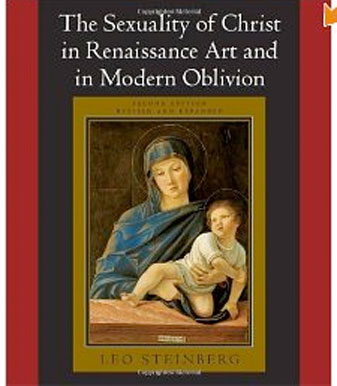This year, I resolved to lose 200 pounds. Of books.
We are surgically attached to our iPhones in this house, so much so that Shane’s first instance of imaginative play was holding a block up to his ear and pretending to talk to it. However, I haven’t been able to warm up to reading e-books. Reading screen-by-screen feels like driving at night, with no way to see what’s outside the small range of my headlights. I like to be able to orient myself, at a glance, about what came before and how far along I am. If a book isn’t lying on my bedside table, kitchen table, bathroom shelf, dining room table, or desk, I forget that I’m reading it. As a result, my ever-growing collection is shelved in archaeological strata rather than any thematic order.
Last summer, I undertook the Great Closet Purge. Out went the uncomfortable lawyer shoes and matronly satin blouses, the miniskirts from my single year of stress-induced slenderness, and the flowery print dresses that had served my mother’s fantasy of molding a 1980s teenager into a Victorian ingenue. Something had shifted inside me, letting me understand that I could release these past selves while still honoring them.
The Great Book Purge has a similar intention. Besides de-cluttering my space, I’m seizing this opportunity to face and accept the changes in my worldview over the past two decades.
It’s making me very uncomfortable.
How did my idea of a good book go from Dinesh D’Souza’s Illiberal Education to Richard Labonte’s Best of Best Gay Erotica 2? Why do I no longer have the patience to read sentences like, “This is a form of postmodern liberationist hermeneutics in which the non-relativist convictions of a liberation ethic stand in uneasy tension with the assumption that hermeneutics has no critical-objective element”?[1]
When I was first drawn to Christianity as a teenager, the elegant complexity and logical coherence of Christian theology comprised a big part of the appeal. Right now, I happen to be in a stage of development where those same features feel like intellectual defenses against the direct apprehension of God in my heart and my body. I believe that head and heart will come into greater equilibrium down the line, so I’m not tossing all my academic books. The other night I opened to a random page in Paul Hessert’s Christ and the End of Meaning, a book I’ve owned for two decades and never read, and wrestled with a passage about the gap between “God” as a religious concept and THE LORD as an actually experienced Presence.[2] That’s what I’m talking about — or not talking about!
Rather than the accessibility of the writing style, the weightiest factor in my book purge is whether the author is conscious of the limitations and privileges of his subject position, as Hessert appears to be. Because I’m bringing the personal and empathetic aspects of religion into the foreground as never before, I have to feel a relationship of trust toward an author, and that requires a certain measure of political self-awareness and psychological transparency on his part. (I’m deliberately using the male pronoun.)
Thus, I have trouble getting past a passage like this one, although the rest of the book seems reasonably progressive and egalitarian for a Baptist professor. The author is posing a hypothetical to illustrate how a pastor might apply the Biblical rule against divorce when a parishioner is being beaten by her husband:
“I must (among other things) make at least some tentative moral judgment about what levels and kinds of spousal violence warrant divorcing a violent spouse…I can analogize from my presumptive rule against divorce only if I can establish for myself the kinds of cases of spousal violence under which the rule against divorce ought to be observed.”[3]
I’ll make it easy for you, Chuck: NONE OF THEM.
To me, this quote reveals an unexamined sense of entitlement to pass judgment on a survivor’s determination of her own safety, in the name of “Biblical rules”. Christianity has a big problem with this, both because of its history of patriarchal leadership and because the Cross is a tricky symbol that can be misunderstood to encourage non-redemptive suffering. I believe a person has an absolute right to escape abuse, and we grossly misconceive religious morality when we treat it as a source of competing interests to “balance” against her survival.
Because of my greater understanding of trauma and the false beliefs it induces, most of my heavily Calvinist-evangelical books are also destined for a new home. That sense of pervasive badness and helplessness, in myself and humanity generally, now seems like an artifact of my unsafe upbringing. The further I get from that self-concept, the more I feel clear, energized, compassionate, creative, and loved by God. But I honor that worldview as a transitional resting place on the way to where I am now. Liberals, if you know a Calvinist, be nice to her. Someone probably messed with her pretty badly. Don’t brush her off with the feel-good foolishness that “sin is just an illusion”. That’s why Who Told You That You Were Naked? is also on the discard pile (despite its enticing title), with my margin notes from the 1990s saying “No, abuse is real!”[4]
And while we’re on the subject of wishful thinking, my newfound determination to dispel all psychological illusions is making me generally suspicious of theology, and even of faith itself. Both liberal and conservative religious books seem united in pushing people’s attention away from themselves and out toward some more-worthy “other”, either a morally superior deity or the unfortunate neighbor in need of our charity. From an Alice Miller perspective, this looks like a concerted effort to avoid feeling our own trauma and caring for the neglected child inside. Mainstream theology tells us: “We are bad but God is good…we are helpless but God is in control…we are selfish but others deserve the sacrifice of our lives.” What is that except a collective elaboration of the protective denial that forced us to idealize our abusive parents?
Truth be told, my magical-thinking machine hasn’t worked right since 2009, when I underwent a painful break with my evangelical friends over “the Gay Issue” at the same time as a longed-for adoption match fell through. Bitterly, I saw in retrospect how I’d ignored the warning signs in both situations, taking at face value the selective facts that supported my longing for love and connection.
And now that I do have a child at last, I’m even less sure what to make of God’s role in all this. Like the Psalmist, I want to thank and praise God for fulfilling God’s promises–but while I was wandering in the wilderness, it wasn’t apparent that anything had been promised to me. I wasn’t Sarai, Hannah, Elizabeth or Mary. I received no prophecy, no guarantees. When friends would say, “I believe God will send you the child who’s meant to be yours,” I wanted to scream, How do you know anything about it? The folks in my life who had slung God-talk most confidently were also the ones whose God was cruel and arbitrary toward non-heteronormative love. Why shouldn’t I fear that my infertility, like a same-sex attraction, made me one of God’s cast-offs? My subsequent good fortune feels equally random, unless I can find the error in this whole way of thinking about God’s sovereignty and human suffering.
Hessert’s distinction between “God”-as-concept and THE LORD suggests a way out of dead-end theodicies. We can’t think our way through the problem of pain, but we can recognize the struggle as the holy ground where we encounter God. He writes:
“LORD,” then, is not synonymous with “God” in the language of order or “Supreme Being” (or some other concept) of Western philosophy. We are likely to misinterpret “The LORD works vindication and justice for all who are oppressed” (Ps. 103:6) as “There is a Supreme Being who controls history providentially so that social justice is divinely assured, whatever people may do.” This is patently not the case…
[W]e can avoid begging the question as to whether or not there is a “Supreme Being” and to what extent this Being controls history. We can say simply that the working of social justice, vindicating the oppressed, is one of those contexts in which “the LORD” is to be named. We may not always see vindication and justice where we should like to. But where they are evident, the awe attending the mystery bordering our experience is called forth.[5]
That’s the kind of faith that attracts me now: A practiced readiness to notice the in-breaking of God’s presence, but without any required conceptual filters or compulsory emotions (optimism, self-abasement) that interfere with clear perception of what is actually happening in my world.
Bauckham & Hart’s Hope Against Hope (which I also haven’t read yet) is on the keeper pile because of this passage:
Not all hopelessness is bad for us, let alone dehumanizing. Hopelessness can be a perfectly healthy condition and, correspondingly, hope can be pathological…Hope has its legitimate limits, and it is vital that we identify them correctly lest we mistakenly invest ourselves in a dead end, an option with no future…
[H]ope is no mere heroic subjective disposition of the individual, an attitude which, regardless of what faces it, soldiers on, refusing to accept defeat long after the battle has been lost, convinced that through its striving and contrivance things may yet be turned around. Real hope is far less focused on its own capabilities. It is not concerned with some supposed right or capacity to choose and to create for itself the reality which it desires. Real hope is essentially rooted in the qualities and capacities of otherness, of that which lies beyond itself in other people, in the ‘real world’. It is, in [Jesuit writer William] Lynch’s words, ‘an interior sense that there is help on the outside of us’…In [George] Steiner’s sense it is a wager on transcendence, on something which lies beyond us, as yet unseen but, we believe, real enough.[6]
You had me at George Steiner.
“When the word of the poet ceases, a great light begins.”
****
[1] Charles H. Cosgrove, Appealing to Scripture in Moral Debate: Five Hermeneutical Rules (Eerdmans, 2002), p.164.
[2] Paul Hessert, Christ and the End of Meaning: The Theology of Passion (Element, 1993), pp.68-75.
[3] Cosgrove, p.71.
[4] John Jacob Raub, Who Told You That You Were Naked? (Crossroad, 1992).
[5] Hessert, pp.73-74.
[6] Richard Bauckham & Trevor Hart, Hope Against Hope: Christian Eschatology at the Turn of the Millennium (Eerdmans, 1999), p.62.



